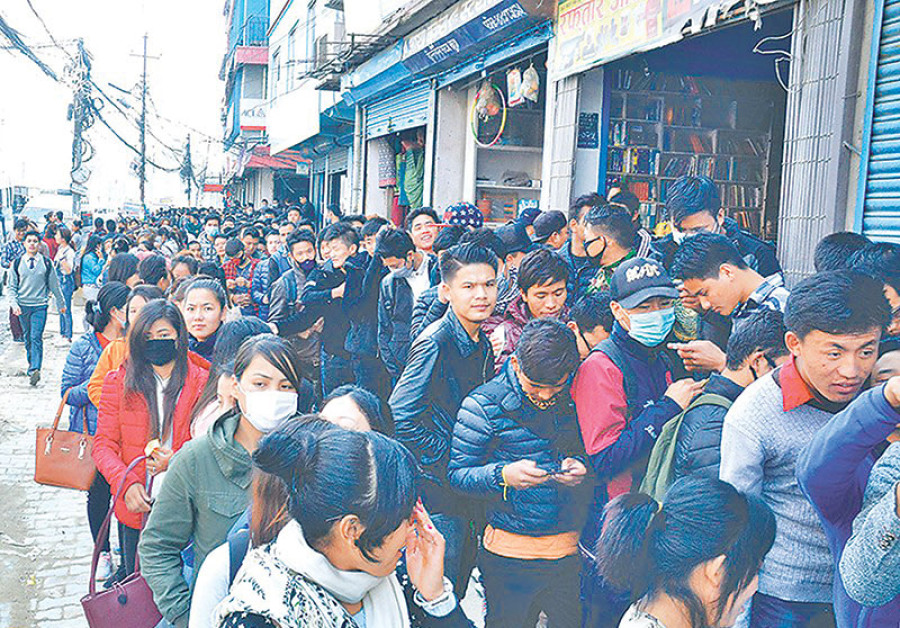National
Over 400 Nepalis head back to Korea with no jobs at home
Unlike the first-timers, 439 young Nepali men and women returning to South Korea for their second stint as migrant workers believe their experience will be the most valuable asset when they join the Korean labour market.
Chandan Kumar Mandal
When Kedar Rai left his home in Silichung Rural Municipality, Sankhuwasabha for a factory job in South Korea in 2011, he had hoped that he would earn enough to start his own business before coming back.
He returned home last year, his life goal still a far cry. While Rai did earn a decent salary working at a factory in Chungcheongnam-do province of South Korea, his savings were nowhere close to what he had expected to kickstart his business.
Today, the 34-year-old is preparing to leave for South Korea for a second stint. Perhaps, he will realise his dream this time.
“I couldn’t do much last time. This time will be different, though,” he says.
Rai is among the cohort of 439 young Nepali men and women returning to South Korea for their second stint as migrant workers. Unlike the first-timers, they believe their experience will be the most valuable asset when they join the Korean labour market.
Anisha Gurung, who hails from Netrawati Rural Municipality in Dhading district, is also leaving for South Korea for the second time after returning home in January 2017. Similar to Rai, she spent over four years working in South Korea to save enough to start a business in her village— a tomato farm in her case, only to find that the money she saved was not sufficient to pursue her dream.
And she, too, believes that the second stint in South Korea would be her golden ticket. Rai and Gurung are among the 439 fortunate individuals who are getting a second shot at fulfilling their dreams; a total of 3,155 returnees had applied. But their stories, dreams and aspirations underpin the harsh realities of unemployment and lack of opportunities at home.
When Rai and Gurung returned home having worked in South Korea for years, they both found out little had changed in the country since they left. Youth unemployment was still rife and hundreds of young men and women were flying overseas for employment.
“Even if you wish to work here, there are no jobs. I want to go to Korea knowing that the work there is not going to be easy,” says Gurung. “Once you start earning money, you forget the struggle and hardship.”
South Korea is among the top labour destinations preferred by young Nepalis with decent level of education, for passing the Korean language test is compulsory to get job placement. According to the Employment Permit System Section of the Department of Foreign Employment, 54,363 Nepalis have reached South Korea since 2008. Nearly 6,000 have returned for second job.
Thousands of Nepalis are also working in various Gulf and South Asian countries, where wages are lower and facilities far worse. Like South Korea returnees, they also rarely earn enough money overseas to help them start their own trade back home. Many of them end up re-visiting their former job destination or other parts of the world, chasing their unfulfilled dreams.




 20.12°C Kathmandu
20.12°C Kathmandu














